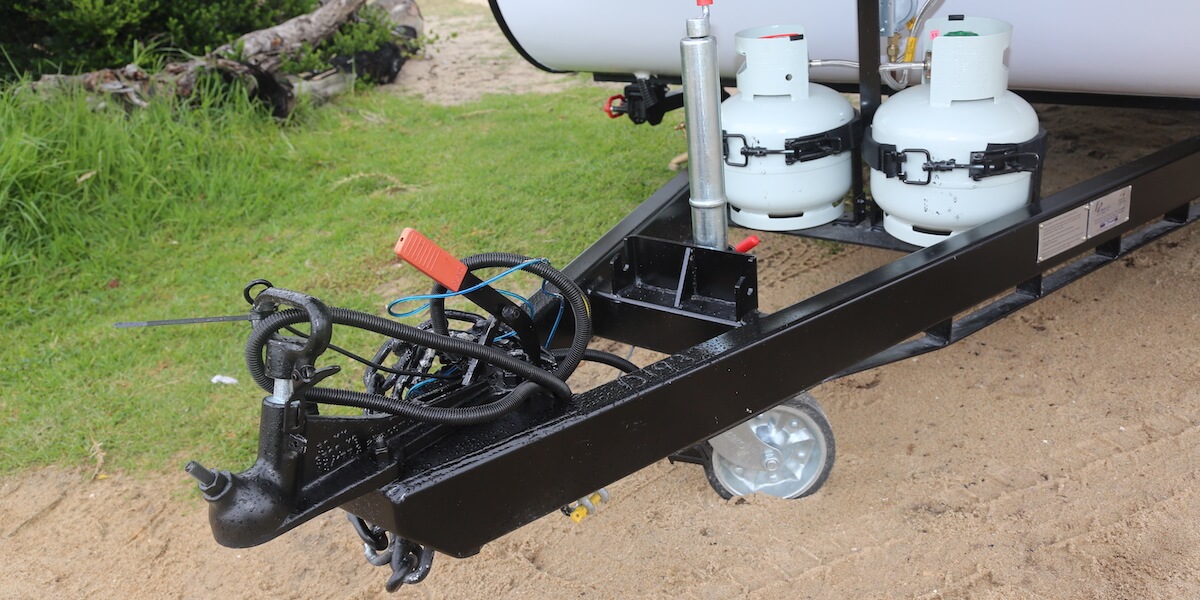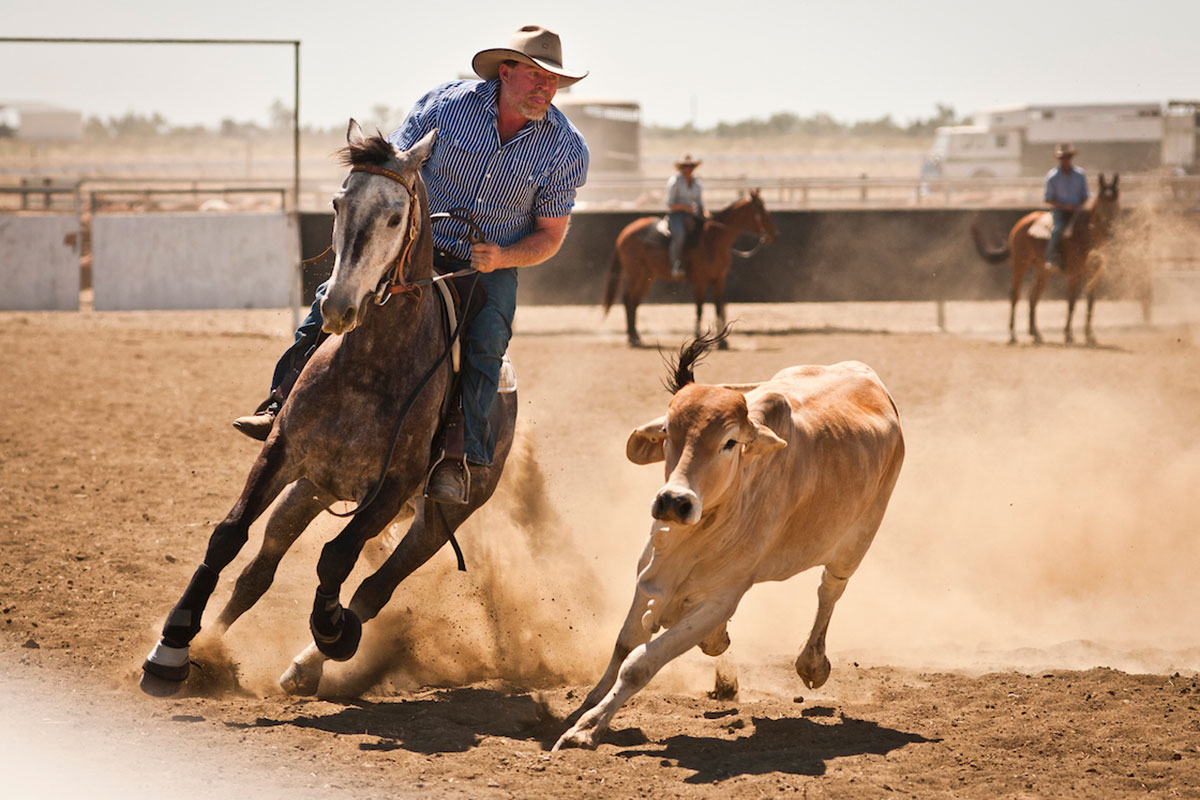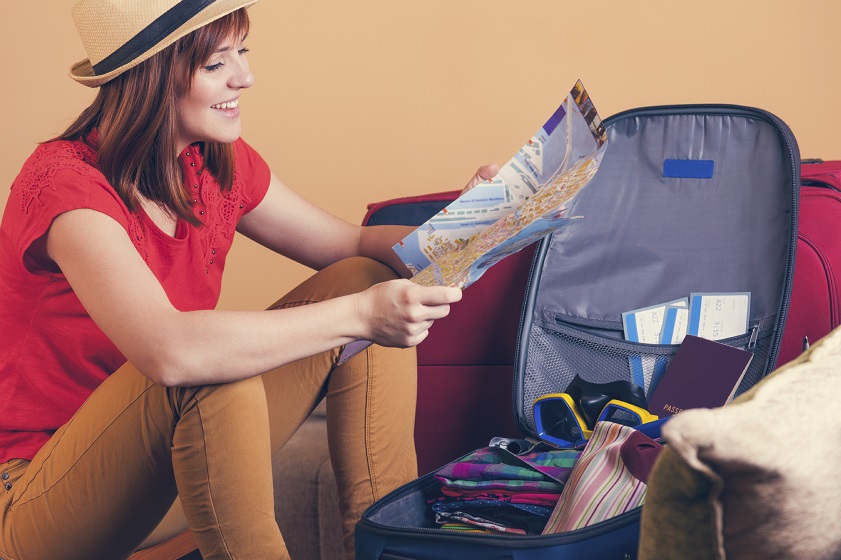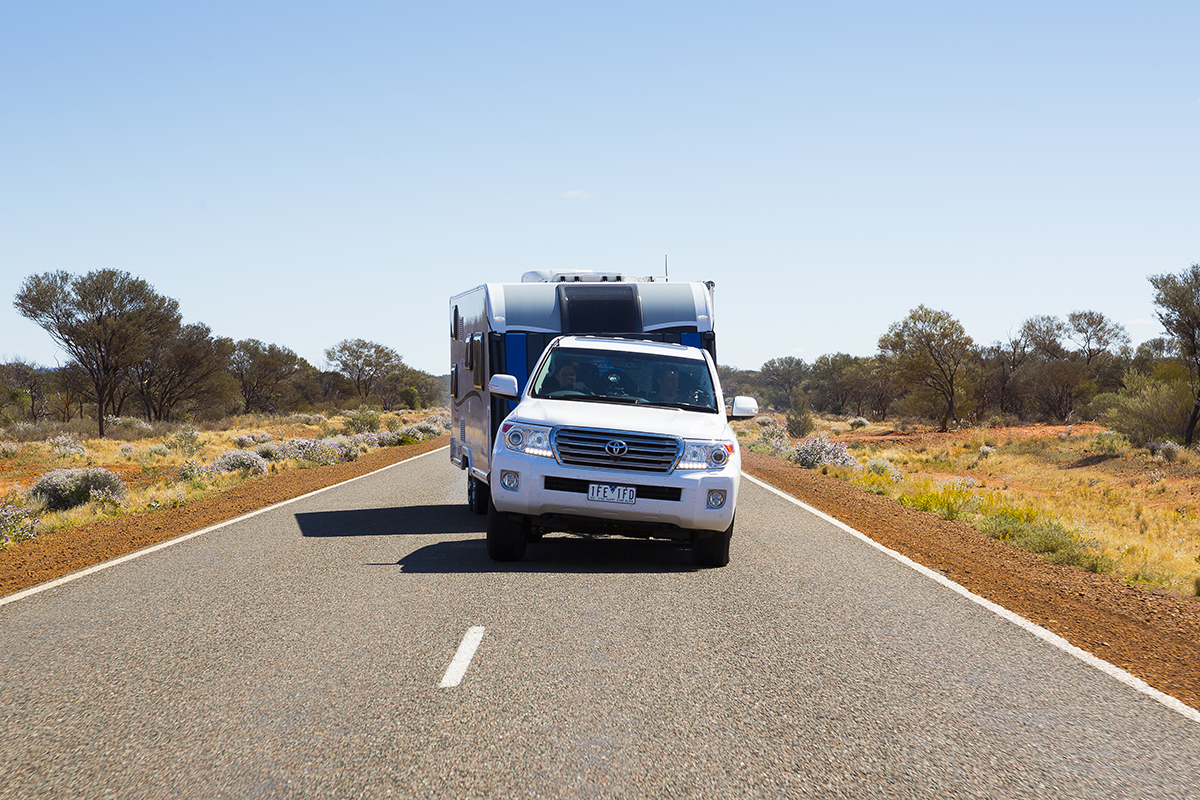The coupling is the point of connection between the caravan and the tow vehicle. It is secured to the van’s drawbar by four or six high-tensile bolts that have been torqued to specific values.
In Australia, there are two main types of caravan coupling: off-road and on-road. These couplings provide very different tasks, so it’s essential that you have the correct type for your needs.
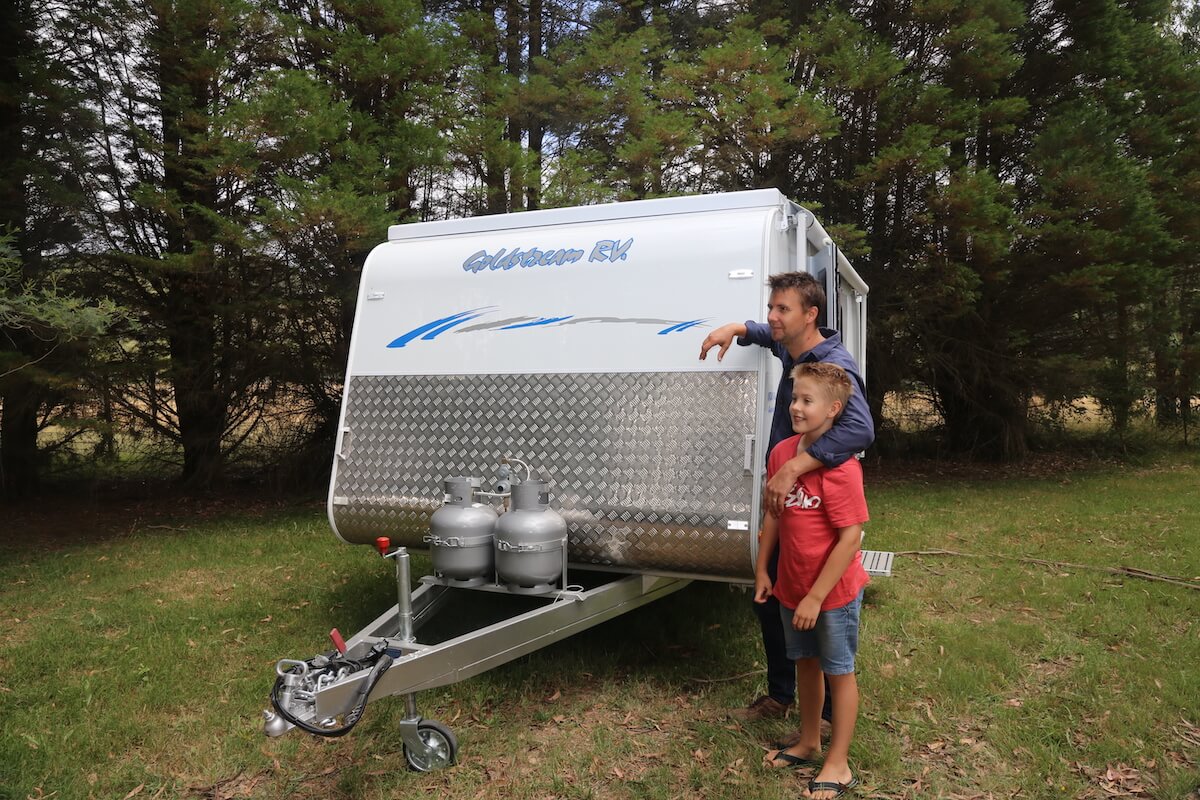
ON-ROAD COUPLINGS
Virtually every coupling in Australia designed for on-road-only touring will be the humble but effective ball coupling. These connect to a 50mm towball secured to the towbar.
These couplings – the vast majority of which are manufactured by AL-KO – have been in use for many decades. They are simple, require very little maintenance save for a bit of grease once in a while, and will almost outlast the caravan.
However, their rigid one-piece housing – from the towball receiver to the drawbar bolt holes – makes them unsuitable for towing the van over and across steep undulations and other off-road terrain types. Their inability to articulate independently of the tow vehicle will potentially result in massive forces being imposed on the coupling and the chassis, depending on the severity of the off-road terrain. Under these conditions, something will eventually break.
Having said that, the rigid 50mm ball coupling is much cheaper than their off-road counterparts and perfectly suitable for blacktop touring. So if the caravan is not designed for off-road touring, it’s worth asking yourself whether the additional expense of an off-road coupling is necessary.
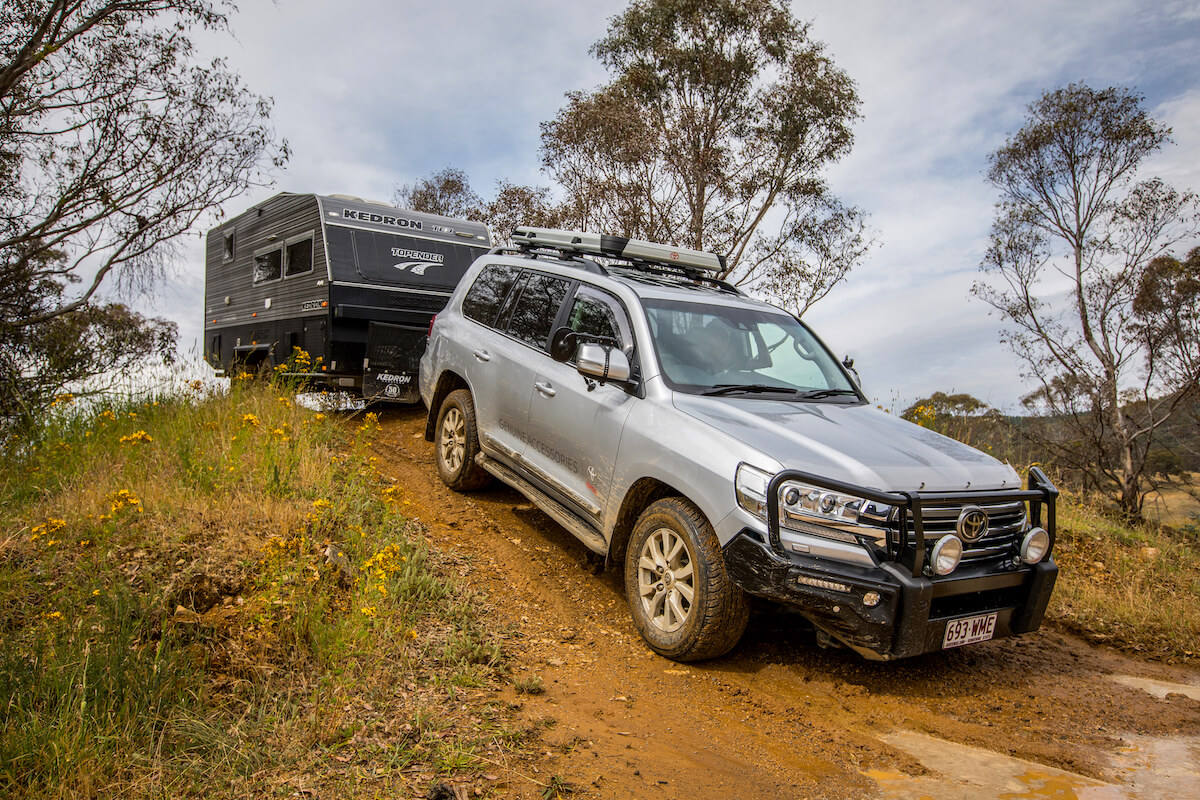
OFF-ROAD COUPLINGS
If any off-road touring or undulations are on the agenda, then your caravan really should be equipped with an off-road coupling. The good news is that there is a large range of off-road couplings on the market at various price points.
They all have one key feature in common: the ‘head’ of the coupling – the part that connects to the towball or pin – has the ability to articulate freely and independently of the rest of the coupling.
This articulation, which occurs on both the horizontal and vertical axes, negates the forces that would otherwise be imposed on the coupling and caravan chassis by the movement of the tow vehicle as it traverses undulations.
Such couplings cost anywhere from about $300 to $1000-plus. They either fit to a conventional 50mm towball or a specially-designed ‘pin’ that will come with the coupling. The AL-KO offroad ball coupling is an affordable, well-regarded option that can be fitted by the manufacturer of the caravan or as an aftermarket option.
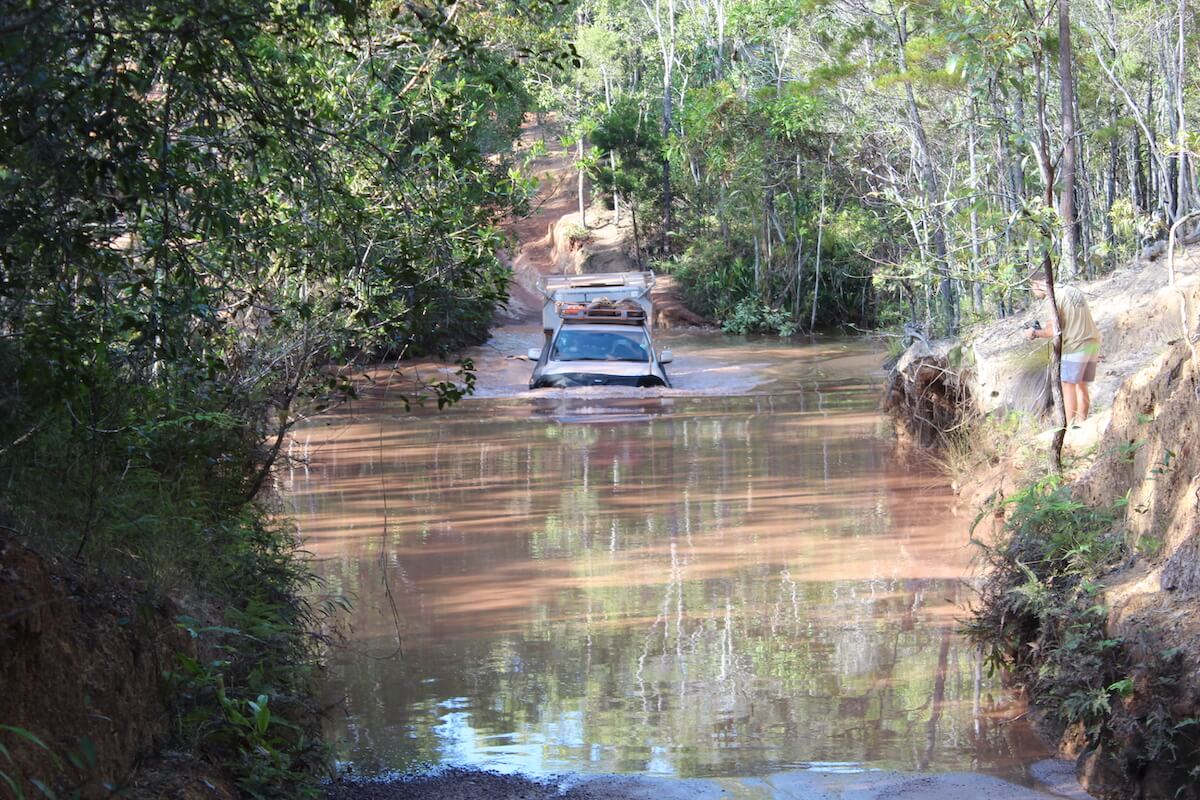
RATINGS
All couplings have a weight rating that applies to the maximum loaded weight of the caravan it is bolted to. If the caravan has an Aggregate Trailer Mass of 3.5 tonnes, for example, the coupling must also be rated to at least that weight at a minimum.
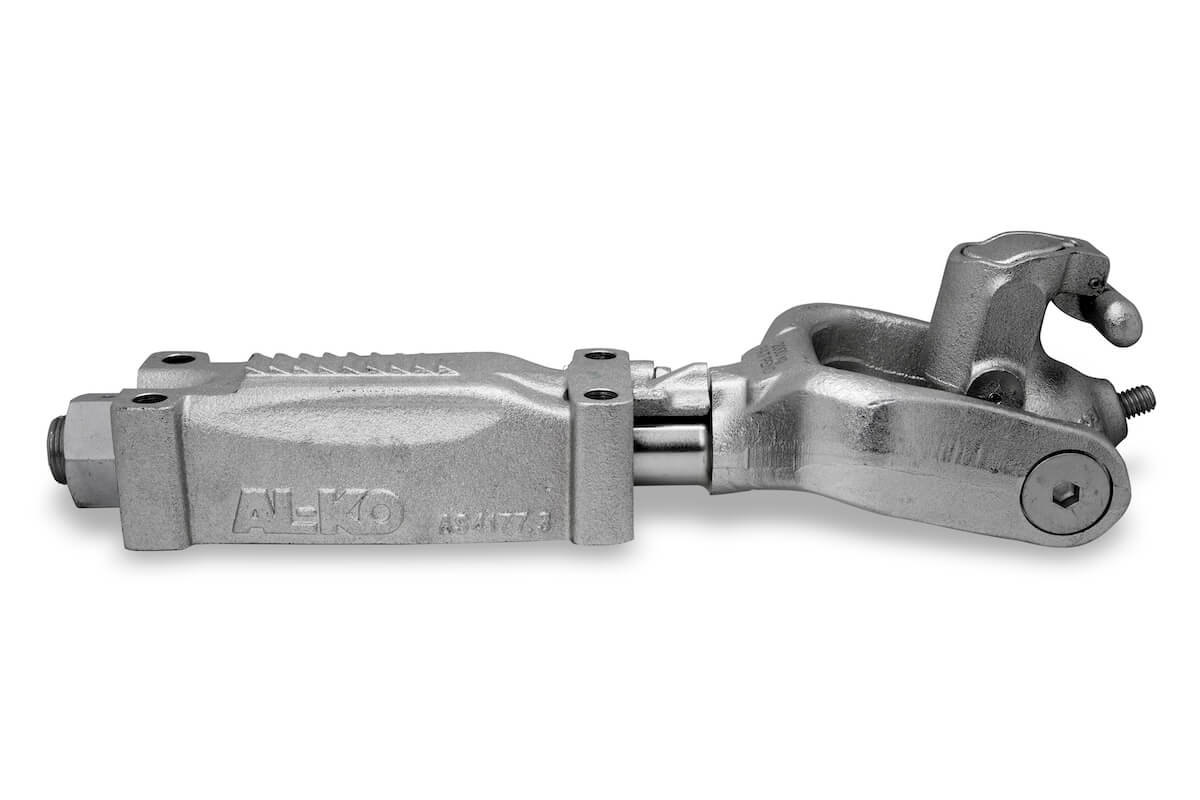
SUMMING UP
Personally, I prefer to use off-road couplings. They perform all the tasks of on-road couplings but provide the advantage of allowing the van to articulate independently of the tow vehicle. Rigid ball couplings, however, are more limited in their application, though they are cheaper and very effective at what they do.
Ultimately, it depends on your touring intentions. Will you always be on the blacktop, or are off-camber tracks, tricky terrain and uneven embankments in your future? Choose your coupling accordingly.
MEET THE AUTHOR

Max Taylor
Max Taylor has been caravanning since he was a kid and was the editor of some of Australia’s most well-known RV publications for almost 10 years.

